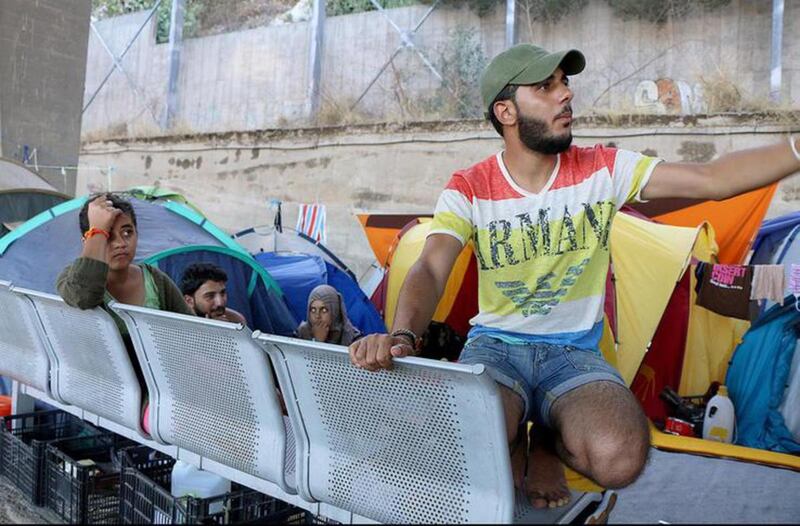In the film "The Avengers," the villain, Loki, stands over a crowd of men and women, commanding them to kneel. All succumb, and then an elderly German man arises and declares: “I will never kneel for a man like you.” Bemused, Loki smirks: “There is no man like me.” The man rejoins, with a not-so-subtle reference to Hitler: “There are always men like you.”
Latter-day Saints know too well that “there are always men” who use religious and ethnic prejudices to divide and conquer their constituents. Rare is the Latter-day Saint in America who has not heard of Gov. Lilburn W. Boggs’ call to “exterminate” the Saints from the state of Missouri. For three generations, mobs, political figures and commentators leveled attack after attack on the Mormon people in their hopes for refuge. Latter-day Saints know the stories well, and they need not be repeated here.
In 1948, Raphael Lemkin, a refugee from the Holocaust and human rights attorney, convinced the United Nations to make “genocide” be a crime. And it is for good reason that Lemkin considered the Mormons in Missouri to be victims of this crime against humanity.
In 1783, George Washington promised a group of Irish Catholics: “The bosom of America is open to receive not only the Opulent and respectable Stranger, but the oppressed and persecuted of all Nations and Religions.” But in 2016, politicians and pundits have leveled a sustained attack against religious minorities and refugees around the globe.
In the United States, France and the United Kingdom, politicians and pundits use the power of the airwaves to assault Syrian refugees, comparing them to snakes and poison. The rhetoric we daily hear reflects the same kind of attacks that were leveled by Hutu pundits prior to the Rwandan genocide and Ottoman Turks before the Armenian genocide. And as Drs. Robert P. George and Cornel West — polar opposites in their politics — have observed, the Daesh has leveled a campaign of genocide against religious and ethnic minorities throughout the region, a genocide, they plead, should “be recognized and called by its name.”
But it should surprise no one of the horrors that we are capable of committing against the vulnerable in order for us to feel more comfortable; a decade after extending his welcome to the Catholics, Washington himself would authorize the Kentucky militiamen to use all means necessary to remove indigenous Americans from the lower Ohio River Valley. In hopes of buttressing their own positions as political figures and celebrities, men and women exploit the pain of innocent victims and our anxieties about change and uncertainty.
The Saints have long known how to mobilize to protect those facing danger. When the Willie and Martin handcart companies became stranded in my home state of Wyoming, their leadership ordered the men to load up their wagons to “go and bring in those people now on the plains. … Otherwise, your faith will be in vain.”
Yet, even we as Latter-day Saints have demonstrated that we are capable of giving into the impulses that govern the darker regions of our souls. In 1857, when fearful of the onslaught of an incoming army, a band of Mormon militiamen massacred over 150 unarmed men, women and children.
One voice of peace warned that “when threatened, we become anti-enemy instead of pro-kingdom of God.” If we turn our backs on those who seek refuge, then we place ourselves alongside those who stood in silence as the Saints wandered through the Missouri wilderness while mobs killed and raped. The price of defending religious freedom is not only measured in body counts, it is measured in our willingness to protect the rights of political and religious expression, even — and especially — when we find it to be disagreeable. As a missionary and an author, I have had the privilege of personally listening to the stories of refugees from around the world. Both horrific and hopeful, they reveal the same kind of resilience I see in my Latter-day Saint ancestors.
We live in a time of particularly flawed candidates, both of whom are vulnerable to serious allegations on various levels.
But as we make our political choices, we must focus our gaze on the hope of the American experiment: the hope that peoples of different ethnic, religious and ideological division can forge a functioning civil society. As Latter-day Saints, we enjoy a position to be advocates for that tradition, to advocate publicly for the welfare of the oppressed and persecuted. This election season, we have a moral obligation to support policies and practices that will promote the welfare of our minority brothers and sisters in need. It is for these reasons that I, without equivocation or reserve, stand opposed to Donald Trump winning the White House.
Russell Stevenson is founder of Latter-day Saints Against Trump and author of "For the Cause of Righteousness: A Global History of Blacks and Mormonism, 1830-2013."

